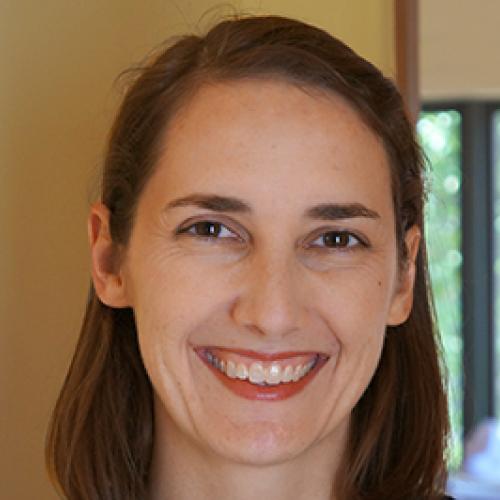Adele Nelson is an Associate Professor in the Department of Art and Art History at the University of Texas at Austin, where she also serves as Co-Director of the Center for Latin American Visual Studies (CLAVIS) and faculty affiliate at the Lozano Long Institute for Latin American Studies (LLILAS). She received her BA in Portuguese and Brazilian Studies and Art Semiotics from Brown University and her MA and PhD in Art History from the Institute of Fine Arts, New York University. She specializes in twentieth and twenty-first century art of Latin America, with a focus on the postwar and contemporary art of Brazil. Her research and teaching interests include the intersections of art and social identity; the history of art institutions, exhibitions, and pedagogy; the close study of objects; transnational exchange; and theories of modernism and artistic activism.
Dr. Nelson is the author of Forming Abstraction: Art and Institutions in Postwar Brazil (Studies on Latin American Art series, University of California Press, 2022), the 2023 Antonio Candido Prize recipient for the best humanities book from the Brazil Section, Latin American Studies Association and a 2023 CHOICE Outstanding Academic Title winner. The book highlights the importance of exhibitionary and pedagogical institutions in the development of abstract art in Brazil in the 1940s and 1950s and illuminates the complex, strategic processes of citation and adaption of local and international forms. It ultimately demonstrates that Brazilian art institutions and abstract artistic groups—and their exhibitions of abstract art in particular—served as crucial loci for the articulation of societal identities in a newly democratic nation at the onset of the Cold War.
Her writings on art from Latin America have appeared in academic journals and international magazines, including Art in America, Art Journal, Artelogie, and ARTMargins, and she co-edited special issues for Latin American and Latinx Visual Culture and MODOS: Revista de História de Arte. She has contributed to numerous museum publications and edited volumes, among them, Between Point Zero and the Iron Curtain: International Cooperation in Art, 1945–1948 (Brill, 2024); Lygia Pape: Tecelares (Art Institute of Chicago, 2023); Volpi Popular (MASP, 2022); Form and Feeling: The Making of Concretism in Brazil (Fordham, 2021); Lygia Clark: Painting as an Experimental Field, 1948–1958 (Guggenheim Bilbao, 2020); Hélio Oiticica: To Organize Delirium (Carnegie Museum of Art/The Art Institute of Chicago/Whitney Museum of American Art, 2016); and Mário Pedrosa: Primary Documents (The Museum of Modern Art, New York, 2015). She also authored Jac Leirner in Conversation with/en conversación con Adele Nelson (2011; Portuguese edition, 2013) and contributed to the catalogue and helped to organize the award-winning exhibition Joan Miró: Painting and Anti-Painting, 1927–1937 (MoMA, 2008).
She co-edited the English and Portuguese editions of Social Fabric: Art and Activism in Contemporary Brazil, which showcases 10 contemporary Brazilian artists and new research by UT current and former graduate students, released in 2023 by Tower Books, an imprint of the University of Texas Press, and in 2024 by Cultura Acadêmica Editora, Fundação Editora da Unesp (State University of São Paulo). The publication grew out of the exhibition Social Fabric: Art and Activism in Contemporary Brazil at the Visual Arts Center at UT Austin (September 2022–March 2023). The project received The Andy Warhol Foundation for the Visual Arts Grant. You can read more about the exhibition here, visits and talks by some of its artists here, here, here, here, here, and here, research by UT Austin graduate students here, and see videos of Rosana Paulino’s talk here and seminars by Aline Motta and scholar Diane Lima here and here.
Dr. Nelson is currently working on a book about women printmakers in Brazil and their transnational and activist networks. Her research has been supported by the American Philosophical Society, Fulbright U.S. Scholar Program, and the National Endowment for the Humanities.


